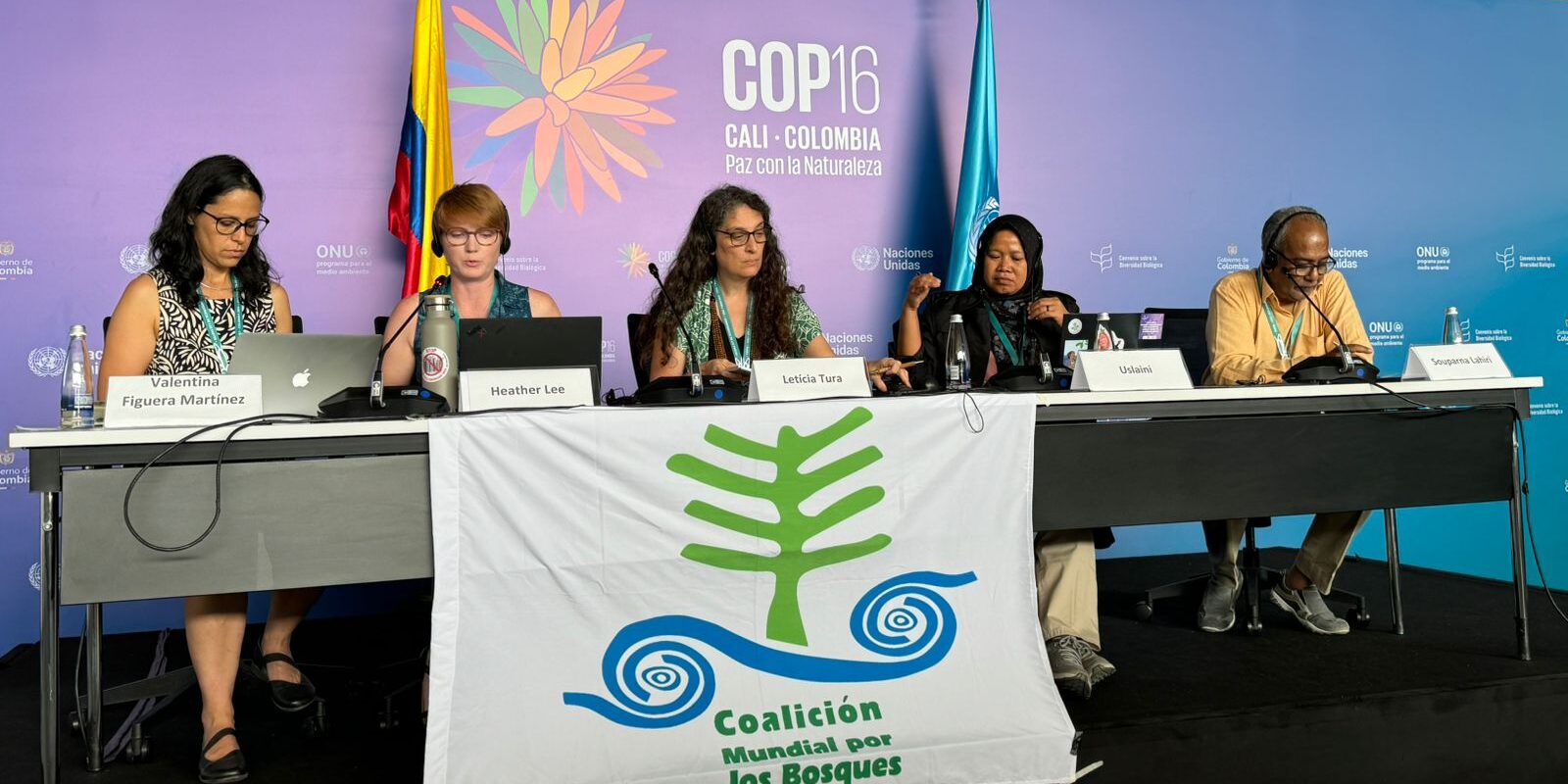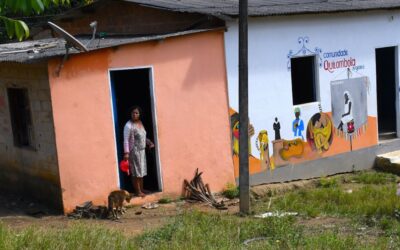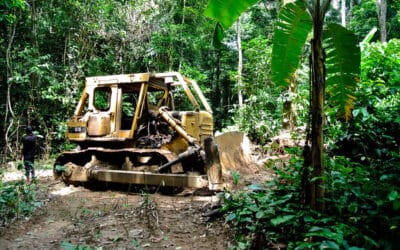Cali, Colombia, 29 October 2024
“As long as governments are in cahoots with corporations to destroy nature, there cannot be ‘Peace with Nature.’” Souparna Lahiri of the Global Forest Coalition offered this succinct assessment of the host country Colombia’s slogan for the 16th UN biodiversity conference, “Peace with Nature.”
In Colombia and around the world, Lahiri said:
Environmental defenders and Indigenous community leaders are being killed in the name of ‘Peace with Nature.’ And in the last couple of days, in COP16 corridors, our governments have deleted text demanded by our Indigenous brothers and sisters for direct access funding.
Countries are gathered at the conference, known as CBD COP16, to assess commitments under the Global Biodiversity Framework, and civil society groups including members of the Global Forest Coalition (GFC) are raising their voices against corporate influence at the negotiations. Corporate lobbies are a driving force behind the commodification of nature and consequent failure of the UN system to tackle the root causes of biodiversity and forest loss, GFC representatives explained.
“False solutions [to the biodiversity crisis] at COP16 can be seen as war with nature, not peace with nature. They’re pushed by business interests so they can keep polluting and go on with business as usual,” said a GFC member from Canada, Heather Lee of the Global Justice Ecology Project. She referenced REDD+, geoengineering, monoculture tree plantations used for bioenergy, and carbon and biodiversity offsetting as false solutions to the world’s environmental crises. Lee said:
False solutions are based on the commodification of nature and the idea that corporations have the right to expand their operations and use even more land and resources. They don’t take into account the worldviews of the guardians of biodiversity, including women, Indigenous People and forest-dependent communities.
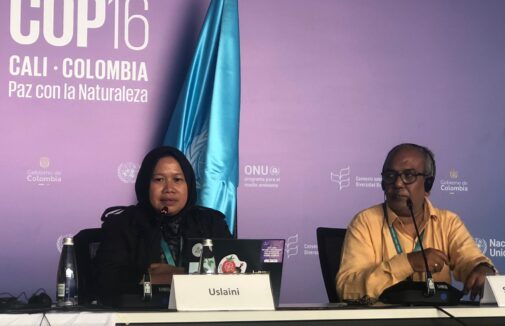
These sentiments were echoed by the other speakers on the panel, including Uslaini, a woman leader from WALHI in Indonesia, who said, “We need respect for Indigenous communities, human rights, gender equality, and the empowerment of women and girls. In the current situation, economic policies in Indonesia are leading to the destruction of the territories of Indigenous people and local communities.”
She added that women need to be heard and included in decision-making because “women in Indonesian communities have key roles in ensuring the availability of food, clean water, and medicine for their families.”
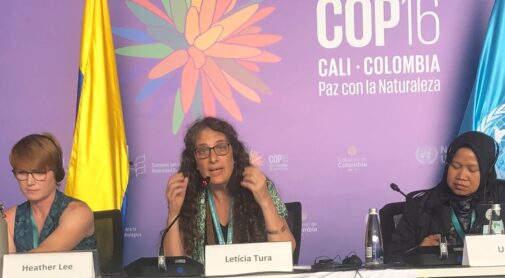
Letícia Tura of Brazil, a leader from the civil society organization FASE, expressed disappointment with lack of progress on addressing the true causes of biodiversity loss and climate change:
In about 30 years of environmental conferences, we haven’t seen progress, we haven’t seen effective biodiversity protection measures at national levels, or northern commitments to financing and cooperation in solidarity with the South. ‘Peace with nature’ is built on the backs of the people, including women and Indigenous and local communities, and at the expense of the communities that are opposed to agribusiness.
Lahiri agreed that deforestation and biodiversity loss are continuing unabated despite decades of promises, and cited the example of forest fires raging at unprecedented rates in South America this year, with about one quarter of the Amazon region affected by fires. He said:
Corporations are burning trees to produce energy and profiting from billions in subsidies given by governments. They’re destroying nature, destroying the territories of Indigenous Peoples and local communities. But at the same time, they’re talking of biodiversity offsets and credits, as if destruction can be financed and compensated with finance. These are the realities we see unfolding in front of us. They’re allowing extractive industries and agribusiness to continue their war on nature.
Real solutions to the biodiversity and climate crises are crucial now, and they exist, but the GFC panelists agreed that genuine system change is needed.
To put the world back on track to achieve biodiversity targets, Leticia Tura said, “We need to freeze false solutions. We need to learn about the lifeways and practices of local peoples today in their territories. We have challenges in the future, but the future is being forged today in the territories.”

